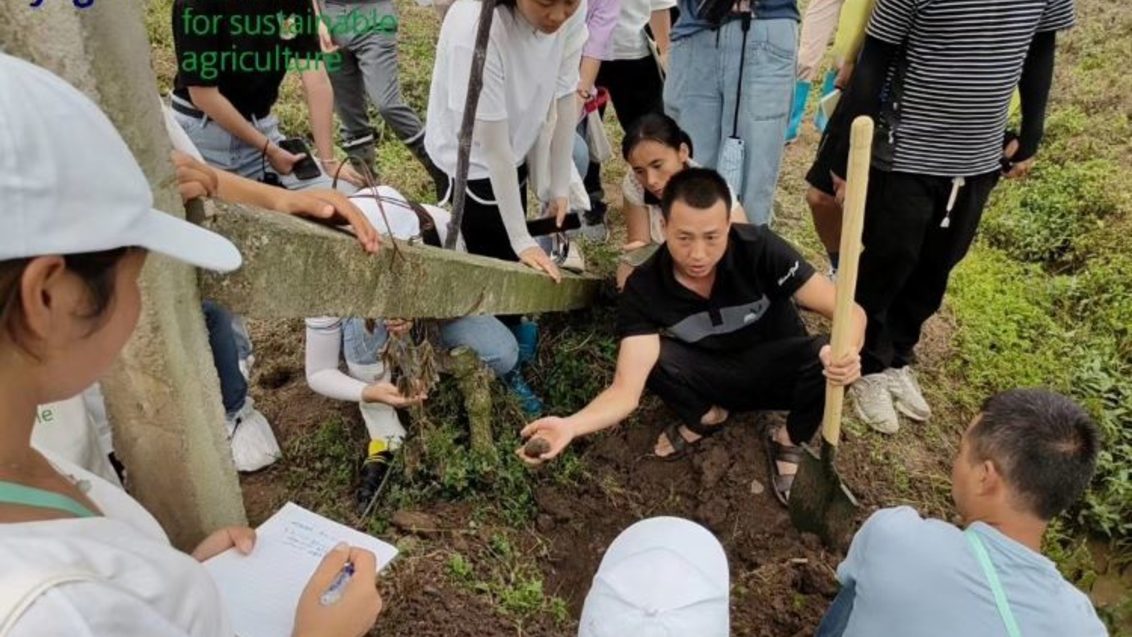Kiwi training leads much-needed youth into farming

Ageing farmers bring great experience to their tasks – but a lack of successors poses a major threat to food security. This danger is apparent worldwide. In China, we are opening up new perspectives with agricultural training for the next generation. Initial experiences have been excellent.
In many countries worldwide, farmers are getting older and older. China is no exception. The Ministry of Agriculture and Rural Affairs calculates that the average age of Chinese farmers is now over 50; in some regions it is approaching 60. In China, the dual phenomena of labor shortages and abandoned farmland have become increasingly apparent. This is of great concern, not only to the government. If a lack of farmers led to food shortages in the world’s most populous nation, the effects would be felt everywhere.
Most young Chinese, including those in rural areas, see farming as poorly paid and exhausting. “The Syngenta Foundation knows this from various sources, including its own recent survey”, comments our local Program Manager Duan Yuwei. “We want to change this view by providing young people with advanced and comprehensive training programs, and by showing them the huge potential of farming.”
Tony Tong, our Foundation’s Program Director in China, adds: “Young people have great passion, energy and ability to learn and adopt new concepts. They will be the major farming force very soon, and they have to farm smarter.”
In Mianzhu city, we recently launched our “Entrepreneurial Farmer Training Programme for the Sichuan Kiwifruit Industry”. This comprehensive program is open to applicants aged 18-35 with an agricultural interest or background. Focusing on a particular crop, it provides them with a range of practical and useful skills.
The program recruits 30 people per 28-day term; we have hosted two terms so far. All participants live and study together. “They benefit from lectures by domestic and international experts’ lectures, field practices, and a field day visit”, Yuwei explains. “The potential farmers of tomorrow also learn about machinery operation, health and safety, sustainability and business skills. The program is intense, interactive, inclusive and interesting!”
The participants work in five groups and have to deliver daily tasks and mission as a team. This both builds their sense of teamwork and enhances the learning process by combination different styles and approaches. As one of the Syngenta Foundation’s D&I Champions, Yuwei also keeps a close eye on course composition. “Each term, the profile of students is very diverse: half are girls, and participants come from a wide range of regions, religions and backgrounds.”
Response hitherto has been very encouraging. “We’ve had excellent outcomes and feedbacks”, reports Tony Tong. “Those have come not just from participants but also from universities, local government and the kiwifruit industry. People say they’ve never seen a training program like this in China. Participants describe it as very well designed, emotionally comfortable and useful.” After the training, over 75% of students feel much more confident about continuing and expanding their farming business or engaging in agriculture after graduation.
Looking ahead, the Foundation aims further to improve participants’ experiences of the training, and bring in resources to extend this initiative to multiple regions and crops.
